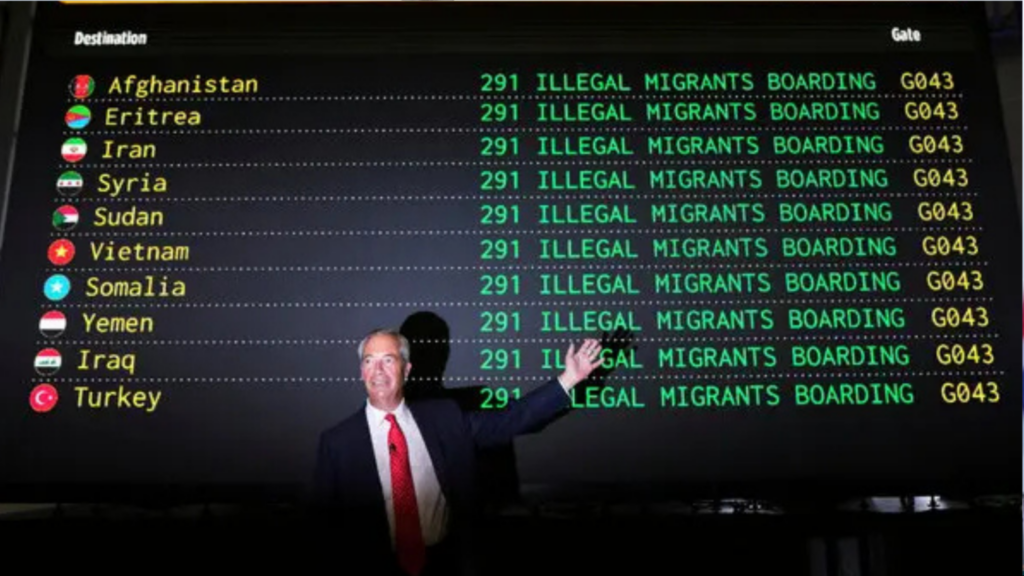When the Age of Populism Meets the Recession of the Century: The Great Depression Revisited?
The term “Age of Populism” has become partially established in political science as a label for our time, which is characterized by populists in governmental responsibility and their policies. Increasingly, economists are labeling the period we are probably at the beginning of as the “Recession of the Century” (Nienaber 2020). The coexistence of these two terms raises the question of how the conditions underlying the labels (i.e. populists and their policies and one of the worst recessions since the Great Depression) influence each other. A protectionist foreign trade policy seems (at least from a Western perspective) to be a consistent feature of the economic policies of populist governments. Even if the media attention of (e.g.) the protectionist policies of the Trump government has waned, it still persists. For example, new duties were recently imposed on Canadian aluminum exports to the USA (Whalen 2020).
In view of the coming recession, this awakens unpleasant memories of the “Great Depression”. It is now assumed that the US government’s high tariff policy, followed by retaliatory tariffs, was partly responsible for the severity of the economic crisis (Madsen 2001, 867). In view of this knowledge, it is worthwhile to take a closer look at the situation described above. Maybe it is possible to avoid the mistakes of the 1920s and 1930s.
Populism and Trade Policy: A Stocktaking
The last decades were characterized by (global) economic liberalization and the dismantling of (tariff) trade barriers, both for industrialized countries and emerging and developing economies. From 1948 onwards, a trend towards a reduction in customs duties can be observed. This is mainly due to the GATT treaty and the corresponding rounds of negotiations. This trend intensified with the establishment of the WTO (Bpb 2017) and the fact that more and more countries joined it, such as India in 1995 or the People’s Republic of China in 2001 (WTO 2020). This becomes clear when the average duty levied is considered. The following is an example of this for the five largest economies by GDP.
If trade barriers are considered in the age of populism (approx. from the end of 2016), it should be noted that the trade war between China and the USA, for example, accounts for only 23% of all newly introduced trade barriers. The European Union, for example, has also (further) restricted trade. Overall, it must be noted that world trade has been significantly affected by newly introduced protectionist policies (Evenett 2019, 6-7). This trend is not visible in the above diagram. This may be due to the fact that the data series ends in the year 2018, but it must also be taken into account that (primarily) industrialized countries have used measures other than tariffs as trade barriers (Yalcin 2017, 4). These otherwise trade barriers can be called NTBs (nontariff barriers) and can manifest themselves in a wide variety of measures (e.g. dumping or standards). Due to the increasing regulation of tariffs at the international level, NTBs have been gaining in importance since the 1960s (Samuelson 2017, 545)
The Impact of COVID-19: Looking into the Abyss
Note: The current situation is very volatile. Even in countries that have (in real terms) dealt well with the crisis, a second wave of disease is currently threatening. Predicting how the course of the pandemic will affect the economy is very difficult. All forecasts must therefore be treated with extreme caution.
It is possible that the global economy (and also the world trade) will only recover from the slump caused by the lockdown towards the end of 2022 (Baldwin 2020, 3-4). It is also quite possible that the recession triggered by COVID-19 will increase the incentive to introduce protectionist trade restrictions. Populists such as Donald Trump in particular could use this to try to satisfy voters. The Situation reminds in an unpleasant way of the 1920s and 1930s (Baldwin 2020, 5-8). It should also be noted that, according to classical theory, protectionism has negative effects (Samuelson 2017, 534), but also makes the fight against the pandemic more difficult, as it limits the effectiveness of health care systems (Baldwin 2020, 9).
On the one hand, increasing restrictions on world trade would affect the countries with the largest balance of trade surplus. These include Asian and European economies. Some countries, such as Russia, export mainly energy commodities, but demand for them is likely to decline during a recession exacerbated by trade restrictions. On the other hand, a deep recession combined with increasing restrictions on global trade could slow down the (economic) development of many emerging markets. Asian countries in particular are likely to be affected.
Consequences of the Age of Populism
It has been argued that the Age of Populism has had a negative impact on the degree of freedom in world trade. A mechanism of trade restrictions and retaliation similar to the Game of Chicken was set in motion by Donald Trump and others. Some analysts also predict that populist policies (such as those of the US government) could lead to stagflation (Wade 2017), reminiscent of the economic crises of the 1970s.
Now that the global economy is in recession, the world is at a crossroads. The re-election of Donald Trump could mean a continuation or intensification of the foreign trade policy of recent years. Another example is Brexit. If the United Kingdom were to leave the European Union without a deal, it would make trade between the European states and the United Kingdom more difficult. Even if primarily Western populist governments introduce protectionist foreign trade policies, this will have an impact on the world economy as a whole.
The question of whether populists (e.g. in the USA) will remain in power could become a fateful question for the “West”. If the US and the European Union do not take the lead in the current crisis or in the crisis that follows, emerging (Asian) powers such as the People’s Republic of China could seize this opportunity and change the political map in their favor.
References
Baldwin, Richard/ Eventt, Simon J. (2020): COVID-19 and Trade Policy: Why Turning Inward Won’t Work. (Centre for Economic Policy Research). CEPR Press VoxEu.org.
Bpb (2017): Handelsgewichtetes Zollniveau. (Bundeszentrale für politische Bildung). Available at: https://www.bpb.de/nachschlagen/zahlen-und-fakten/globalisierung/52506/zoelle. Retrieved on: 02.08.2020.
Evenett, Simon J./ Fritz, Johannes (2019): Going It Alone? Trade Policy After Three Years of Populism. The 25th Global Trade Alert Report. (Centre for Economic Policy Research). CEPR Press.
Madsen, Jakob B. (2001): Trade Barriers and the Collapse of World Trade During the Great Depression. In: Southern Economic Journal. 67(4), p. 848-868.
Nienaber, Michael (2020): German economy shrinks at record pace in “recession of a century”. (Reuters). Available at: https://www.reuters.com/article/us-germany-economy-gdp/german-economy-shrinks-at-record-pace-in-recession-of-a-century-idUSKCN24V17Y. Retrieved on: 02.08.2020.
Samuelson, Paul A./ Nordhaus, William D. (2017): Volkswirtschaftslehre: Das internationale Standartwerk der Makro- und Mikroökonomie. München, FinanzBuch Verlag.
Wade, Keith/ Zangana, Azad/ Botham, Craig (2017): TalkingEconomics: Is populism good for markets? (Schroders). Available at: https://www.schroders.com/en/us/insights/economic-views/is-populism-good-for-markets/. Retrieved on: 07.08.2020
Whalen, Jeanne/ Coletta, Amanda (2020): Trump re-imposes tariffs on Canadian aluminium, prompting Trudeau to vow retaliation. (The Washington Post): Available at: https://www.washingtonpost.com/business/2020/08/06/trump-canada-aluminum-tariffs/. Retrieved on: 07.08.2020
WTO (2020): Members and Observers. (World Trade Organization). Available at:
https://www.wto.org/english/thewto_e/whatis_e/tif_e/org6_e.htm. Retrieved on: 02.08.2020.
Yalcin, Erdal/ Felbermayr, Gabriel/ Kinzius, Luisa (2017): Hidden Protectionism: Non-Tariff Barriers and Implications for International Trade. Ifo Institute.



